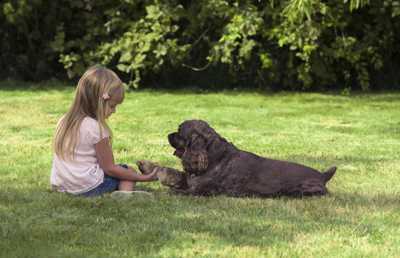Infants and Young Children

Animal Safety Tips
Infants and children less than 5 years old are more likely than most people to get diseases from animals. This is because young children often touch surfaces that may be contaminated with animal feces (stool), and young children like to put their hands in their mouths. Young children are less likely than others to wash their hands well. Objects such as pacifiers may fall to dirty surfaces and then be placed in an infant's mouth. For some animal diseases, young children are more likely than others to get very sick.
Tips to protect infants and young children from getting sick while handling animals
- Children younger than 5 years old should be supervised while interacting with animals.
- Children should not be allowed to kiss pets or to put their hands or other objects into their mouths after handling animals.
- Childrens' hands should be washed thoroughly with running water and soap after contact with animals.
- Handwashing prior to breast feeding or preparation of formula is strongly recommended.
Although this section focuses on how to protect children from diseases from animals, many groups support the health benefits of animals for people, including children.

CDC recommends that infants and children under 5 years old avoid contact with the following animals:
- Reptiles (lizards, snakes, and turtles)
- Amphibians (frogs, toads, newts, and salamanders)
- Baby chicks and ducklings
- Petting zoos
Additionally, children less than 5 years old should be extra cautious when visiting farms and having direct contact with farm animals, including animals at petting zoos and fairs.
CDC Reports and Recommendations
Outbreaks and strategies related to farm visits and petting zoos. Outbreaks of escherichia coli O157:H7 infections among children associated with farm visits, Pennsylvania and Washington, 2000. Morbidity and Mortality Weekly Report, April 20, 2001; 50(15):293-7.
Outbreaks and recommendations related to chicks and ducklings. Salmonellosis associated with chicks and ducklings–Michigan and Missouri, Spring 1999. Morbidity and Mortality Weekly Report, April 14, 2000; 49(14):297-9
Updated recommendations related to reptile-associated salmonellosis. Morbidity and Mortality Weekly Report, December 12, 2003; 52(49):1206-1209.
- Page last reviewed: April 30, 2014
- Page last updated: April 30, 2014
- Content source:


 ShareCompartir
ShareCompartir